- Home
- entertainment
- news
- 15 absolutely essential albums released by female artists this year (so far)
15 absolutely essential albums released by female artists this year (so far)
Callie Ahlgrim

- We rounded up the best female-fronted albums that 2020 has had to offer, so far.
- Women have released much of the year's most essential new music, from Selena Gomez's "Rare" and Halsey's "Manic" to Lady Gaga's "Chromatica."
- All 15 of our picks are listed below in chronological order.
Despite significant setbacks for the music industry, 2020 has heralded some phenomenal albums so far — and female artists have dominated the first five months of the year.
From Selena Gomez's "Rare," the best album of her career so far, to Lady Gaga's triumphant return to pop with "Chromatica," women have released much of the year's most essential new music.
We rounded up the 15 best female-fronted albums that 2020 has had to offer, so far. They're listed below in chronological order.
Read the original article on InsiderWith "Rare," Selena Gomez faces heartbreak, confronts depression, and emerges triumphant.
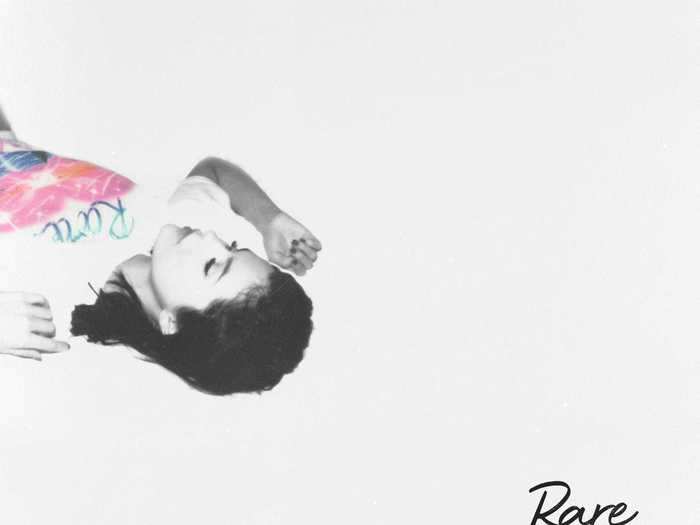
"Rare" is easily Gomez's best album yet. In the words of Rolling Stone's Brittany Spanos: "bops about depression — we love that for her."
Gomez managed to stare down heartbreak, confront her struggles with mental illness, and emerge with a defiantly danceable, glimmering ode to self-possession. It's so refreshing to hear the 27-year-old pop veteran find her groove.
"Rare" harnesses her whispery singing style more effectively than ever, and finds potency in quiet declarations of strength — like trying to find someone supportive and reliable even in the boring moments, burning toast and getting predictable.
Gomez proves that she doesn't need flashy hooks or loud vocal runs to prove her power. "Ring" is a bad b---- anthem that's winking and groovy, for example, rather than obviously tailored to please Spotify's playlist algorithm. The best song on the album, "Vulnerable," pulses and glows. Later, 6lack and Kid Cudi lend some unexpectedly welcome gravity to Gomez's sharp R&B instincts.
This album seems to insist: May we never again mistake quietness for weakness. Gomez is poised, flaunting her newfound contentedness with as much grace as humanly possible.
Halsey's "Manic" is an eclectic, immersive, and breathtaking experience.
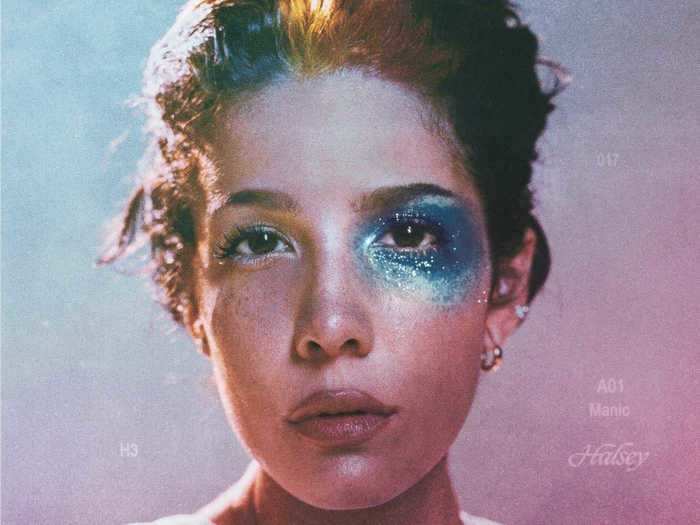
Halsey's songwriting is as piercing and inventive as ever on her third studio album, which is arguably her best yet.
Although "Badlands" will always hold a special place in the hearts of Halsey's fans, she does far more interesting and adventurous work with the eclectic tracklist of "Manic," taking listeners on a genuinely immersive journey through her own psyche.
From the confessional, dark-pop opener "Ashley" to the astonishingly intimate "929," Halsey never lets up. She dabbles in countrified heartbreak with "You Should Be Sad," lets her heart burst open on "I Hate Everybody," yells at her friends on "3am," and gets soft and tender with "Finally // Beautiful Stranger." For 47 minutes straight, she's at her best, her worst, her most vulnerable, her most honest, and inarguably her most powerful.
"Manic" was also included on our gender-inclusive list of the year's 13 best albums so far.
Kesha returns to her carefree pop roots with "High Road."

In 2009, the world fell in love with a glitter-fueled, swaggering girl who compared herself to P. Diddy. Eleven years later, Kesha's stubborn optimism feels more earned, more essential, and more transcendent than ever.
"Tonight's the best night of our lives," Kesha's familiar, metallic, anti-gravity voice promises at the top of "High Road," her fourth and newest album. "Can you feel it? I can feel it."
Deservedly, "High Road" is an ecstatic reclamation of pop music and a celebration of every weird little corner of Kesha's brain. You name it, she'll sing about it — sexual kinks, tripping in the desert, getting "f---ed up in my Sunday best," leaving society behind to grow potatoes — and you'll practically be able to hear her grinning while she does.
Read our interview with Kesha about the carefree energy of "High Road."
"Color Theory" proves that Soccer Mommy is well on her way to indie-pop stardom.
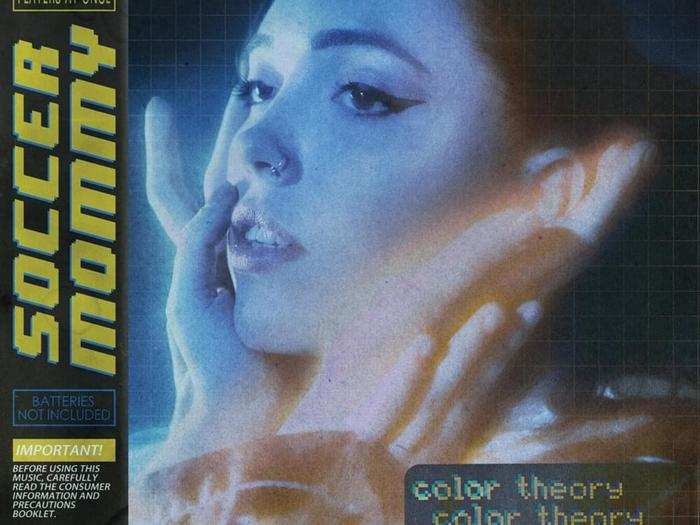
As I previously wrote in my roundup of 2020's best albums so far, Soccer Mommy's sophomore album is lustrous and polished, without sounding overly buffed or perfected.
By signing to a bigger label, the indie-pop wunderkind has been able to execute a cohesive vision more intentionally and effectively than before. As noted by the New York Times, the album is "meticulously conceived as a three-movement cycle divided by mood and theme."
But more importantly, she hasn't surrendered the blunt vulnerability that made her music feel so necessary in the first place; throughout "Color Theory," her lyricism is guttural and doggedly fearless.
"Suga" is a small but potent taste of Megan Thee Stallion's power.
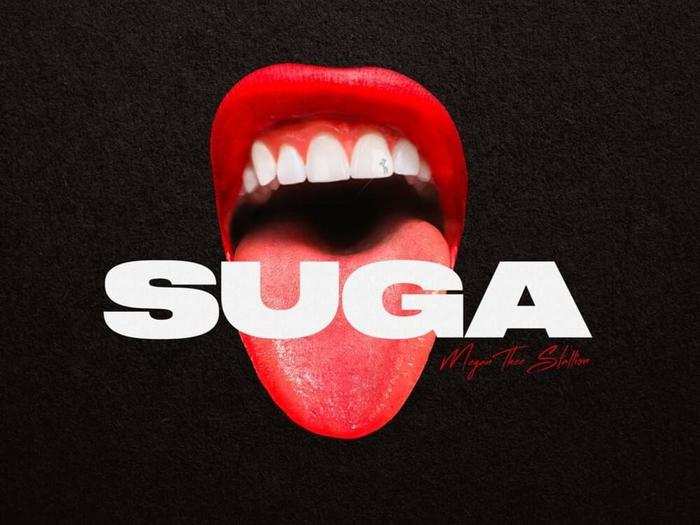
"Suga" makes it clear that, despite her breakneck rise to stardom, Megan Thee Stallion is just getting started. Pretty much every second of the EP's nine-song tracklist is animated, unpredictable, and thrilling.
This is 24 minutes straight of pure Megan — whether she's delivering some heady, autotune-gospel vulnerability on "Crying in the Car" or bragging about how she can be classy, bougie, sassy, and nasty all at once on the deservedly popular "Savage," which only got better and more popular when Beyoncé hopped on board.
This is Megan's time, and she's using every moment to explore and flex her musical muscles, effortlessly swerving from Helluva Beats-assisted rage to playful '90s R&B. She's not just the indestructible patron saint of Hot Girl Summer; she's so much more, and if Megan can do this much with a simple sample platter, there's no telling what kind of heights await her.
Dua Lipa's vivid, disco-infused "Future Nostalgia" is an instant pop classic.
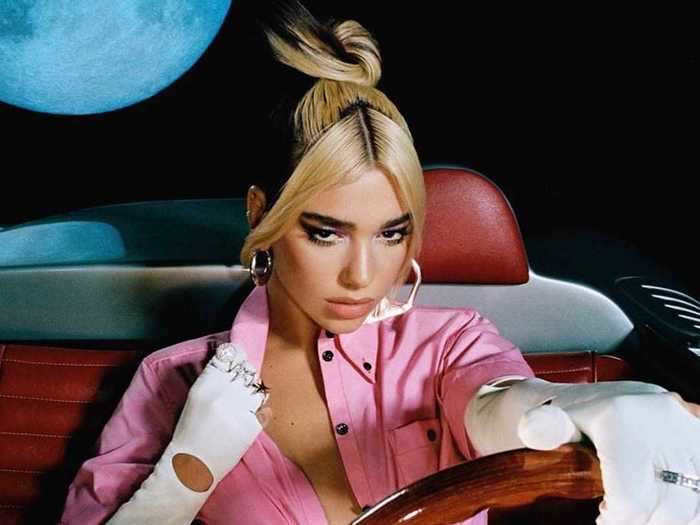
It feels impossible that Dua Lipa's album could match expectations after the sheer pop perfection of its lead single, "Don't Start Now."
And yet, "Future Nostalgia" is unrelentingly brilliant. "Cool" is suave, head-bobbing magnificence; "Levitating" is deeply, delightfully addictive; "Pretty Please" has a uniquely throaty, raw kind of power; and the mid-chorus dropoff in "Break My Heart" gets more exhilarating with every listen.
Waxahatchee's "Saint Cloud" embodies the slow, soft, lilac-colored aura of springtime.

Upon its springtime release, Pitchfork bestowed upon "Saint Cloud" — Katie Crutchfield's fifth solo album as Waxahatchee — the website's rare and coveted title of "best new music."
The album received a high score of 8.7/10, with editor Jeremy D. Larson calling the album "a vivid modern classic of folk and Americana."
"'Saint Cloud' is all lilacs and creek beds, Memphis skylines and Manhattan subways, love and sobriety, the sound of a cherished songwriter thawing out under the sun," Larson writes. "It's a record that suggests maybe if you slow down, life slows down with you, and everything is in bloom."
Fiona Apple's "Fetch the Bolt Cutters" is easily the best album of the year so far.
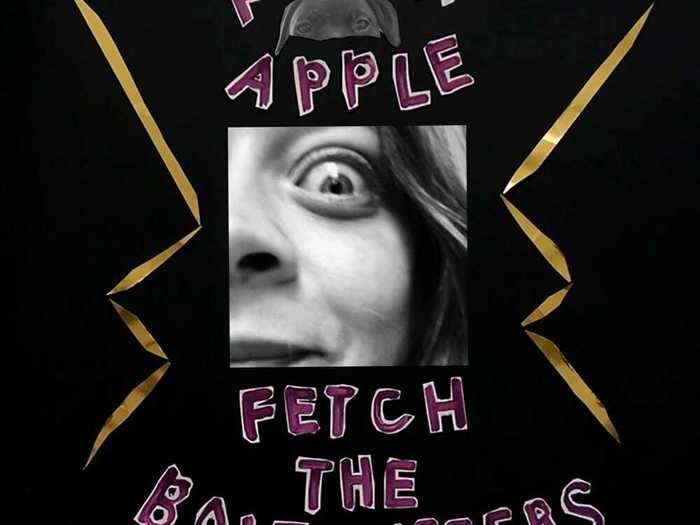
On Fiona Apple's best and most divinely feral album yet, she presents a dissection of her psyche that feels rare and true. "Fetch the Bolt Cutters" is not the sort of music you can listen to on repeat, because it slices right through you with a vividly sharp sword every single time. The blade never dulls.
As Jenn Pelly wrote for Pitchfork, which gave "Bolt Cutters" an almost-unheard-of perfect score of 10: "No music has ever sounded quite like it... It's not pretty. It's free." Rolling Stone called it "a triumphant statement of self-discovery and solidarity." Various New York Times critics hailed Apple for her "casually wise," "fearless," "artfully unguarded anthology."
Rina Sawayama's self-titled debut is an astonishing blend of early 2000s emo rock and bubblegum pop.
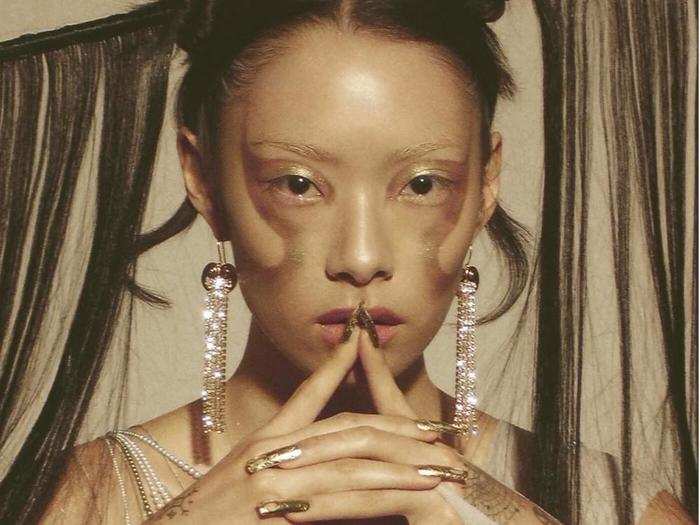
Rina Sawayama's studio debut is the early 2000s revival that so many artists have tried and failed to pull off — whereas "Sawayama" does it so well that it feels like a time machine, only capable of bringing you to the much-romanticized era of Tamagotchi pets, Juicy Couture tracksuits and Evanescence worship.
"XS" is the album's brightest highlight: a flawless blend of Britney Spears at her peak, the pop maximalism of Kim Petras, the glittering allure of Paris Hilton's mansion in "The Bling Ring," the irresistibly shallow "Buddha's Delight" from "Music and Lyrics," and the shrewd, half-sincere anti-materialism of Lorde's "Royals."
If you never thought those flavors could be thrown into a blender together and result in a deliciously pink pop confection, then you haven't listened to enough of Sawayama's music.
"STFU!" has hints of both Rage Against the Machine and corny Y2K nu-metal; "Love Me 4 Me" recalls the pre-voice-note genius of Spears' "Lucky" and throws in some *NSYNC vibes, circa "No Strings Attached," for good measure; "Who's Gonna Save U Now?" is clearly indebted to Christina Aguilera's "Fighter."
Every song on "Sawayama" is like a spiked smoothie, made out of all the things you forgot you love.
"Dawn" is a mature, graceful evolution of mxmtoon's beloved bedroom roots.
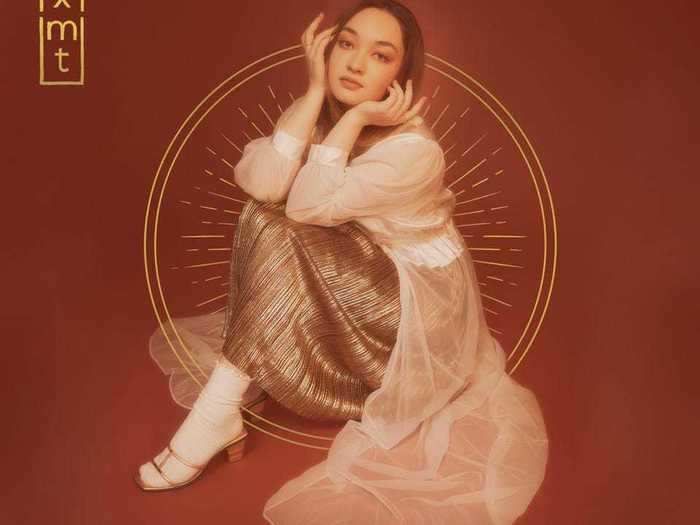
Mxmtoon rose to fame with little more than a ukelele and a desire to express herself.
And though she's still just 19 years old, mxmtoon has come a long way from the cheeky self-deprecation of "1-800-DATEME" and the high school-inspired anxiety of her popular single "Prom Dress" — but her keen sense of self, lighthearted humor, and knack for piercingly relatable songwriting have all remained.
Indeed, "Dawn" is just seven songs, but the EP is saturated with wonder and sophisticated optimism.
The opening track, "Fever Dream," is like if your ears could understand the sun streaming through your window on a Saturday morning. "1, 2" is a bright, poppy highlight that feels tailor-made for bedroom dance parties. The EP ends with "Almost Home," a deeply sophisticated, accessible meditation on moving forward while staying grounded.
"With 'Dawn,' I can see myself more in the grand scheme of the music sphere and be like, 'OK, yeah. My sound kind of matches up with a lot of people that I listen to now, and in my own free time,'" the singer-songwriter recently told Insider.
Read our interview with mxmtoon about the mature new direction of "Dawn."
JoJo has finally grown into her voice and soul-infused sound with "Good to Know."
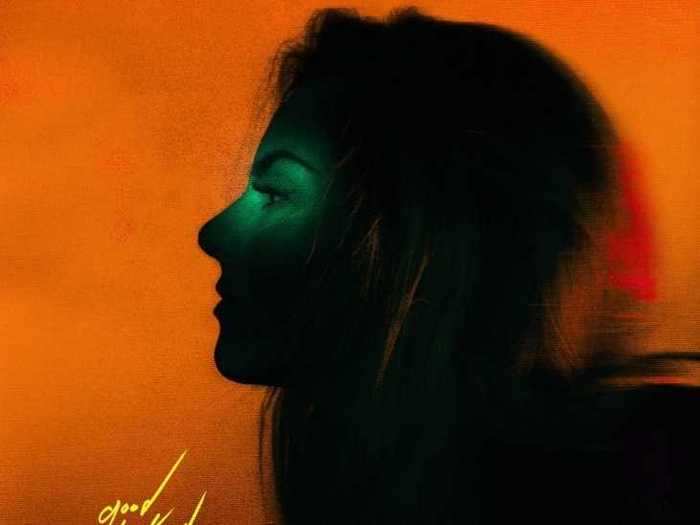
From the very first moment that "Good To Know" takes shape, like an interstellar storm cloud forming in your brain, JoJo says exactly what she means: "Feed me love, sex, and drugs" are the very first words you hear her sing.
"Bring me more, it ain't enough," she continues in her signature pitch-perfect warble. "Tell me I'm pretty, yeah, I need that / Think I'm too sober, where the weed at? / Pay me attention."
The album's entire tracklist is flecked with these shimmering, seductive, almost sinister details. JoJo's mesmeric confessionalism pairs incredibly well with thick, R&B basslines and beats.
Read our interview with JoJo about "Good to Know," which she describes as a "delicious journey" and "a way of holding myself accountable."
Kehlani's "It Was Good Until It Wasn't" is the work of an immensely talented, low-key icon.
There's a joke I saw on Twitter, way back when Cardi B released "Invasion of Privacy" in 2018, that I think about whenever a certain R&B artist appears on my Spotify screen: "The Best Song on Your Album feat. Kehlani."
Kehlani is one of the most talented vocalists and dependably excellent collaborators out there, but she has often deprived her fans of consistent solo releases, leaving us to crave a more cohesive vision of her self and her world.
"It Was Good Until It Wasn't," the long-awaited follow-up to her 2017 debut, gracefully satisfies that very craving. This album is headier, more pared down than her previous projects, but it allows Kehlani to step into an even more intense spotlight.
On this 15-song tracklist, Kehlani exorcises demons, pays homage to lost loves and late friends, contemplates the boundaries of monogamy, and clearly benefits from the complex growth that comes with becoming a parent. She centralizes her own perspective, and that profound intimacy — delivered by her always-inebriating vocals — creates the sort of compelling, brooding, and self-assured statement that she was born to make.
"How I'm Feeling Now" boasts some of Charli XCX's best music to date.
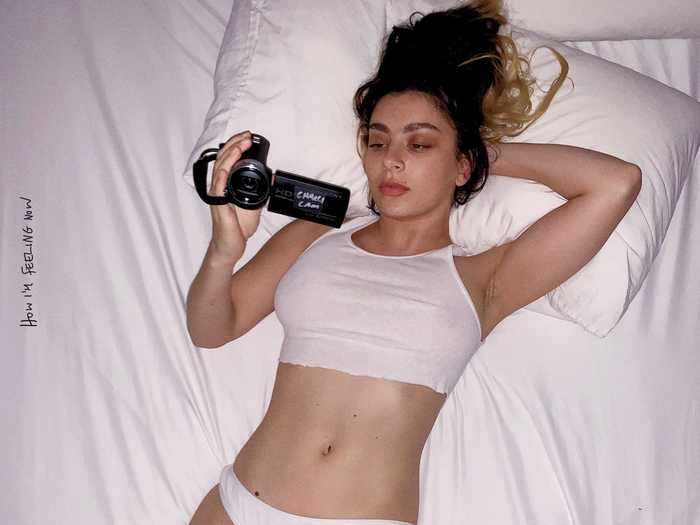
Only Charli XCX could spontaneously throw herself into a two-month creative frenzy and emerge with some of the best songs in her catalog.
Despite its creation and arrival during a global pandemic, "How I'm Feeling Now" isn't overdramatic or defeatist; instead, it's tender and curious, boasting a fresh combination of futuristic production and intimate songwriting. Rather than a pure reflection of this moment in history, the album plays like a rebellion against our worst impulses during a crisis.
Carly Rae Jepsen's "Dedicated Side B" is better than most A-sides.
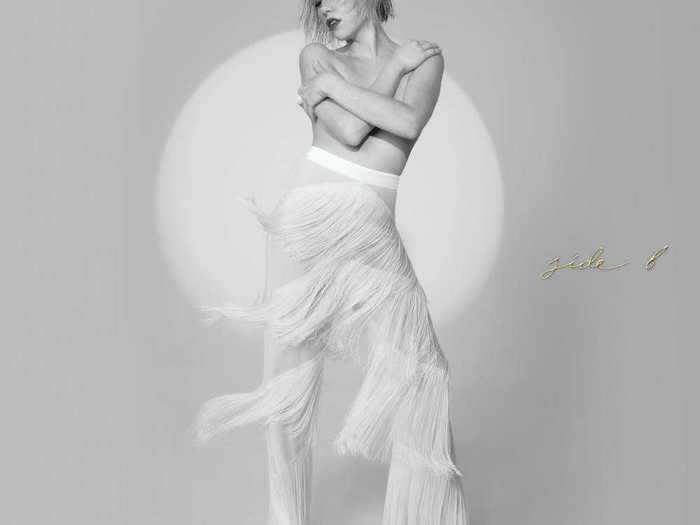
Fans have been begging for the "Dedicated" B-sides since Carly Rae Jepsen's fourth studio album dropped in 2019 — and, just about one year later, she finally obliged.
True to form, these 12 songs don't sound like B-sides. "Dedicated Side B" sounds like a cohesive, sun-dappled, exultant artistic vision.
From start to finish, Jepsen revels in her feel-good pop dominance and '80s-infused idealism. And though she rarely deviates from her sparkling, tingly, edge-free formula, she doesn't need to. Jepsen simply continues to stack impeccable, immediately likable bops on top of each other, like an everlasting Jenga tower — no biggie. She makes it look easy.
Lady Gaga's "Chromatica" is an electro-pop utopia.
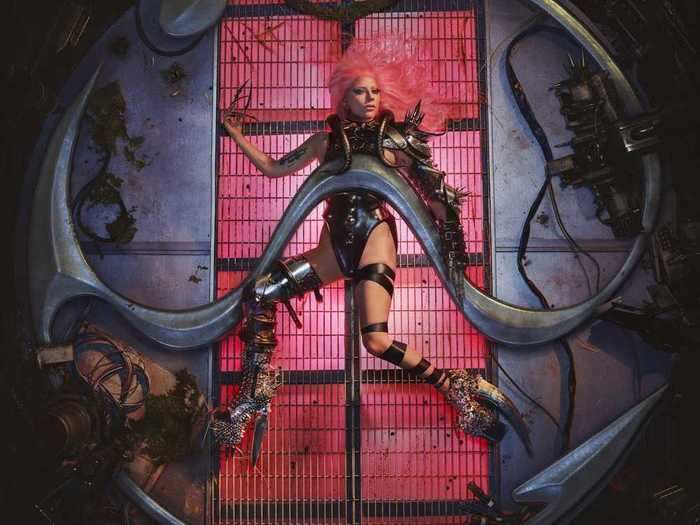
"Chromatica" is the most fun that Lady Gaga has sounded in years. Triumphant singles like "Rain On Me" and "Sour Candy" prove that she's still the queen of the dance floor, while liberation anthems like "Free Woman" and "1000 Doves" are much-needed moments of pop catharsis.
"Chromatica" is a study in the healing properties of '90s house beats, soaring hooks, and multi-colored neon lights. Gaga has earned this electro-pop utopia, and she's rarely sounded more confident and clear-headed.
READ MORE ARTICLES ON
Popular Right Now
Popular Keywords
Advertisement